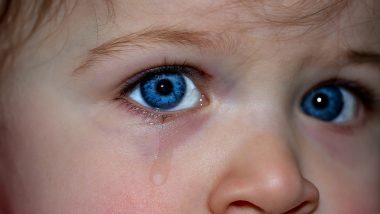New York, February 13: Researchers have identified early risk factors that predicted heightened anxiety in young adults during the COVID-19 pandemic. The findings, published in the Journal of the American Academy of Child and Adolescent Psychiatry, could help predict who is at greatest risk of developing anxiety during stressful life events in early adulthood and inform prevention and intervention efforts.
"People differ greatly in how they handle stress," said researcher Daniel Pine from the National Institute of Mental Health (NIMH) Section on Development and Affective Neuroscience. Mild Depression in Mothers Affect Child's Emotional Well-being.
"This study shows that children's level of fearfulness predicts how much stress they experience later in life when they confront difficult circumstances, such as the pandemic," Pine added.
For the study, the team examined data from 291 participants who had been followed from toddlerhood to young adulthood as part of a larger study on temperament and socio-emotional development. Attention Parents! Here Are 5 Signs That Your Child Is Depressed.
The researchers found that participants who continued to show a temperament characteristic called behavioral inhibition in childhood were more likely to experience worry dysregulation in adolescence (age 15), which in turn predicted elevated anxiety during the early months of the Covid-19 pandemic when the participants were in young adulthood (around age 18).
Behavioral inhibition is a childhood temperament characterized by high levels of cautious, fearful, and avoidant responses to unfamiliar people, objects, and situations.
Previous studies have established that children who display behavioral inhibition are at increased risk of developing anxiety disorders later.
(The above story first appeared on LatestLY on Feb 15, 2021 04:15 PM IST. For more news and updates on politics, world, sports, entertainment and lifestyle, log on to our website latestly.com).













 Quickly
Quickly


